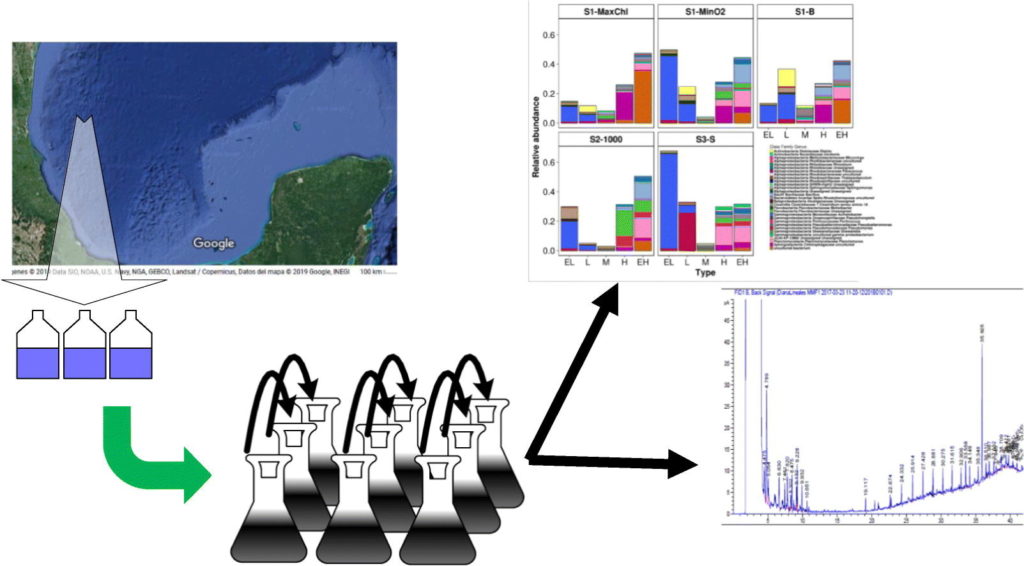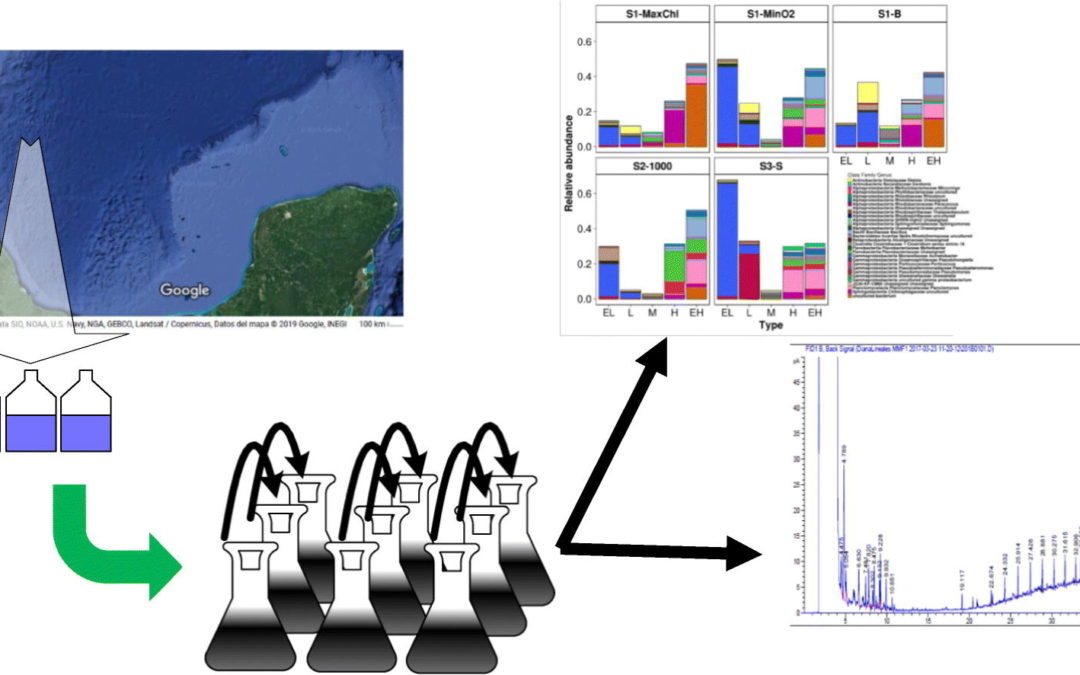Autores: Daniel Cerqueda-García, José Q. García-Maldonado, Leopoldina Aguirre-Macedo, Ulises García-Cruz
https://doi.org/10.1016/j.marpolbul.2019.110775
Abstract
Marine microbial communities might be subjected to accidental petroleum spills; however, some bacteria can degrade it, making these specific bacteria valuable for bioremediation from petroleum contamination. Thus, characterizing the microbial communities exposed to varying types of petroleum is essential. We evaluated five enriched microbial communities from the northwest Gulf of Mexico (four from the water column and one from sediments). Enrichments were performed using five types of petroleum (extra light, light, medium, heavy and extra heavy), to reveal the microbial succession using a 16S rDNA amplicon approach. Four communities were capable of degrading from extra light to heavy petroleum. However, only the community from sediment was able to degrade the extra heavy petroleum. Successional changes in the microbial communities’ structures were specific for each type of petroleum where genus Dietzia, Gordonia, Microvirga, Rhizobium, Paracoccus, Thalassobaculum, Sphingomonas, Moheibacter, Acinetobacter, Pseudohongiella, Porticoccus, Pseudoalteromonas, Pseudomonas, Shewanella, and Planctomyces presented differential abundance between the treatments.



Recent Comments